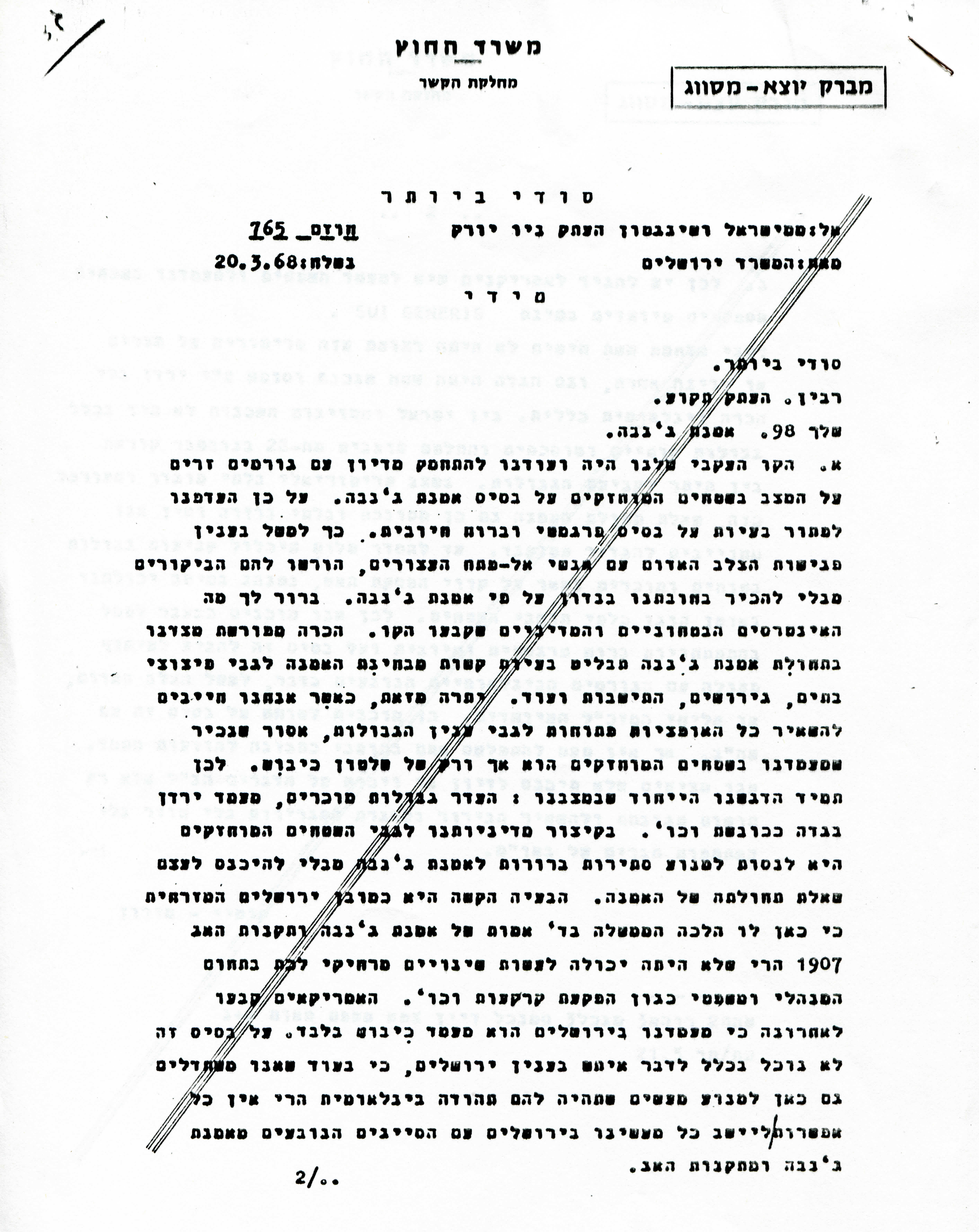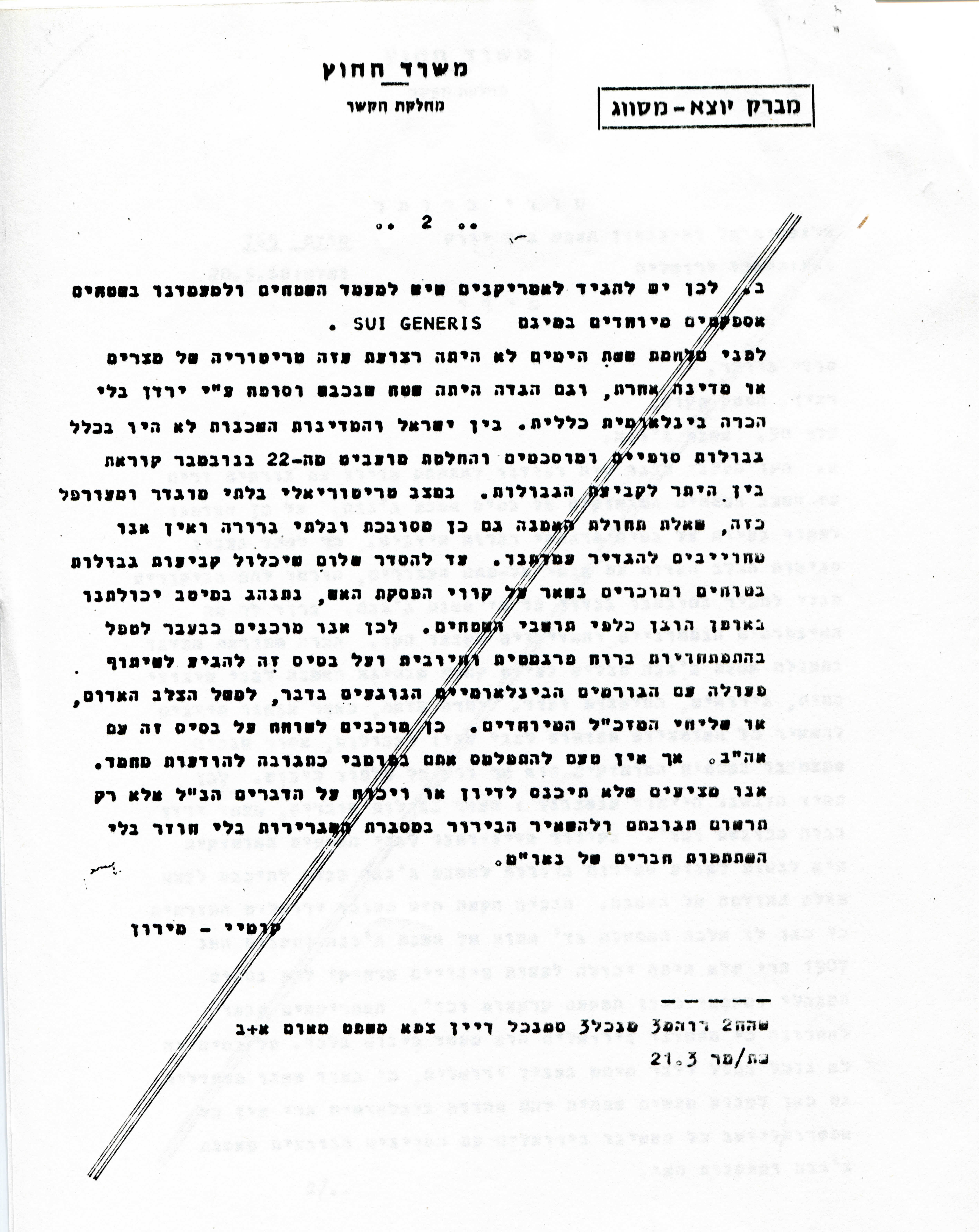A Top Secret cable sent to the new Israeli ambassador in Washington DC, Yitzhak Rabin, explains, with rare frankness, the reasons why Israel avoided formally recognizing the applicability of the Fourth Geneva Convention to the territories it occupied in 1967.
The March 1968 cable, written by Michael Comay, the political advisor to the minister of foreign affairs, and Theodore Meron, the ministry’s legal advisor, presents the considerations behind avoiding formal recognition of the applicability of the Convention. At the heart of these is the recognition that some of Israel’s practices in the OPT violate the Convention: “Express recognition on our part of the applicability of the Geneva Convention would highlight serious issues with respect to the Convention in terms of blasting homes, deportations, settlements etc”. The annexation of East Jerusalem to the State of Israel and land expropriation carried out there were also listed in the cable to the ambassador as contrary to international law: “there is no way to reconcile our actions in Jerusalem with the restrictions emanating from the Geneva Convention and The Hague Regulations”.
Another consideration to justify avoiding recognition of the convention was that in order to “leave all options regarding borders open, we must not acknowledge that our status in the administered territories is simply that of an occupying power.”
The second part of the cable presents the official argument Israel used at the time on the status of the OPT and instructs Ambassador Rabin to avoid debating the matter.


